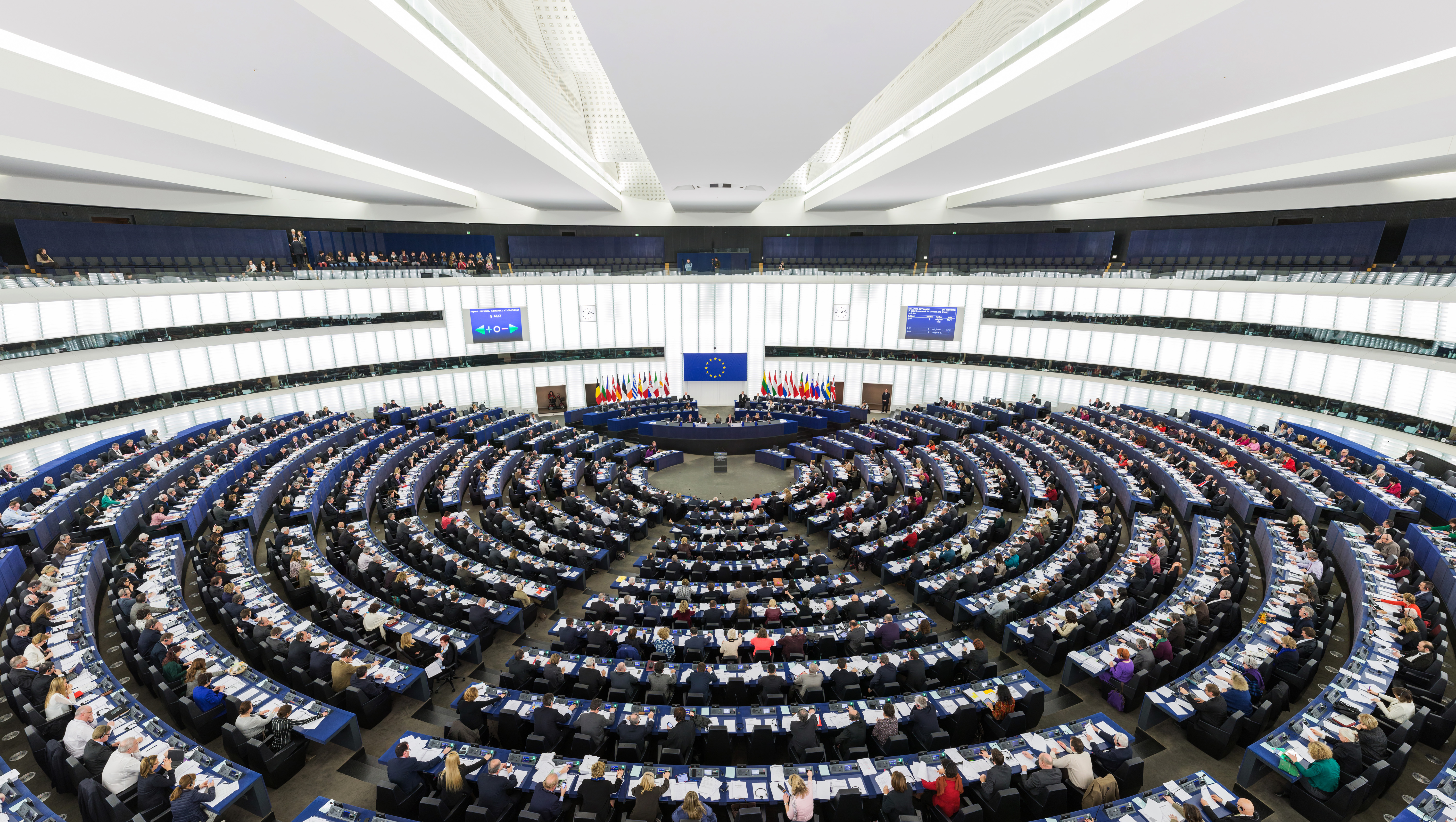
By Onna Malou van der Broek, Master’s student Conflict Studies and Human Rights at Utrecht University and writer for the European Student Think Tank
Since the establishment of the European Union, democratic accountability or the so-called democratic deficit has been an often debated subject (Comelli 2011 p.51). With the introduction of the European Union’s Common Security and Defense Policy (CSDP) in 1999, new questions were raised about democratic accountability (Wagner & Kantner, 2013 p.383). This new policy area of security and defense however, differs from other policy areas in its main characteristics. First of all, it has a higher secrecy level and is therefore less open than other policy areas. Second, CSDP requires a process of fast decision-making. Thirdly, the area remains mainly intergovernmental (Comelli, 2011 p.52; Lord, 2011 p.1140). Decisions are made based on unanimous decision-making and the influence of supranational institutions has been marginalized (Wagner & Kantner, 2013 p.384). And finally, CSDP is a multi-level policy area: decisions are made in the Council, but for the enforcement of CSDP missions, national capabilities need to be drawn (Wouters & Raube, 2012 p.153). Because of the unique character of this field, new forms of democratic accountability should be addressed.
The role of the European Parliament (EP) in overseeing the security and defense policy has been traditionally extremely limited (Gaverilescu, 2004 p.82). However, since the Lisbon Treaty was introduced, a number of changes have been made to strengthen the role of the EP (Comelli, 2011 p.52). The role of the EP in CSDP will be further addressed in the first section of this paper. The next section will look into the concept of democratic accountability and the ways it can manifest. The question arises: why is it important that there is democratic accountability? The main reason is that Europe is one of the biggest promoters of democratic practices abroad, including democratic accountability. Therefore, it would be not credible if the EU was not ensuring the democratic accountability of its own foreign and security policy (Comelli, 2011 p.54). This paper will conclude with some policy recommendations on how to establish a sufficient level of democratic accountability in the field of CSDP.
The role of the European Parliament in CSDP
As stated in the introduction, the EP has traditionally had an extremely limited role in overseeing the security and defense policies. The EP has no formal power in authorizing any CSDP mission. The authorization of CSDP missions is completely in the hands of member states (Comelli, 2011 pp.56-60). Moreover, the EP has only limited powers in overseeing CSDP missions. In other words, the EP has neither a role in the decision-making process of launching CSDP missions, nor to scrutinize the Council’s decisions afterwards (Gaverilescu, 2004 p.82). Before a CSDP Joint Action or mission is deployed, the EP can issue non-binding recommendations and resolutions and enter into a dialogue with the Council. However, these recommendations and/or resolutions do not have a big impact on the Council’s CSDP strategy. With regard to the powers of the EP after a CSDP mission is launched, it has thus far not applied any ex-post resolution on a CSDP mission. Methods such as hearings, evaluations and questioning the Council with regard to CSDP mission however, have been used (Comelli, 2011 pp.56-60).
With the treaty of Lisbon, a number of changes enhanced the role of the EP in the field of security and defense. Article 36 of the Treaty of the European Union (TEU) grants first of all the EP with information and consulting power on the main aspects of basic choices of the CSFP and CSDP. However, these powers remain limited since the ‘main aspects and basic choices’ are not further defined. Moreover, it does not define whether the EP should be consulted before or after a CSDP mission is deployed. Article 36 also gives the newly created High Representative for Foreign Affairs and Security Policy (HR/VP) the responsibility to ensure that the views of the EP are taken into serious consideration. The relationship between the HR/VP and the EP has become a relatively important one, including because the EP has a vote of consent about the Commission and therefore the HR/VP. Finally, the number of plenary sessions of the EP on CSDP issues has been raised from one to two a year by the Lisbon Treaty (Comelli, 2011 pp.56-57).
Another right of the EP is the right to receive adequate information from the Council. This right is established according to a number of Inter-Institutional Agreements (IIA). The field of CSDP holds a lot sensitive information. With the IIA of 2002, the EP has granted a limited right of access to sensitive information. A Special Committee of five members of the European Parliament can look into some of the secret documents. However, they can only access this information with admission of the Council, and Member States can deny it. The IIA of 2006 states that the Council should inform and consult the EP once a year on a forward-looking document on CSDP. Moreover, the Council must keep the EP informed about developments through joint consultations meetings. These meetings should be held at least five times a year (Comelli, 2011 pp.56-60).
Finally, the EP does play an important role in budgetary decisions on civilian CSDP missions. When a civilian mission is financed by the Community budget, the EP has direct influence through co-decision. When it is financed through CFSP budget, the EP has the power to place a ceiling on the budget and must be informed by the Council. The EP only holds no power when the mission is financed by individual Member States. Moreover, the EP holds no power at all when it comes to financing CSDP military missions (Comelli, 2011 pp.59-60; Wouters & Raube, 2012 p.152).
Democratic accountability
In order to speak about democratic accountability, it is important to define the concept. ‘Democratic’ can be defined as government by the people, also known as input legitimacy (Wagner, 2005 p.7). ‘Accountability’ can be defined as the obligation of the executive power to justify its decision towards a parliament (Bovens, 2006). In parliament, citizens choose their representatives to hold these executive officials accountable (Lord, 2011 p.1134). This makes parliaments the main mechanism for accountability (Comelli, 2011 p.54). With parliamentary control the parliaments can determine the final policy outcome. With parliamentary scrutiny, on the other hand, the parliament is informed and consulted by the executive power and oversees the policy field. In an intergovernmental setting such as the CSDP, the main focus should be on parliamentary scrutiny since Member States are responsible for the policy outcome with unanimous decision-making. However, it is important to hold them responsible for their policy outcome (Wouters & Raube, 2012 p.150). Moreover, democratic accountability will most likely take place on a post-hoc basis because of the high security level and the necessity of fast decision-making.
There are three mechanisms to look at democratic accountability: the EP, national parliaments and the public opinion. Beginning with the last mechanism, according to the Eurobarometer, there is high approval among EU citizens about the CSDP (Wagner & Katner, 2013 p.385). This high level of approval indicates that the public agrees with the CSDP policy of the Council. However, there are two critical points in measuring democratic accountability through public opinion. One commonly heard criticism is that there is no common EU culture and therefore no EU citizens. A more legitimate argument however, is that the field of CSDP is a very complex area and because of this a difficult area to evaluate. It is important that the people who perform the democratic accountability are fully informed and most of the public lacks this information and/or capability.
The second mechanism is measuring democratic accountability through the EP. In the former section, the role of the EP in CSDP was further explained. Though the role of the EP tends to be limited, changes with the Lisbon Treaty have improved the overseeing powers of the EP on the CSDP. The third mechanism for democratic accountability is the national parliaments. Although decisions are made in Brussels, they are implemented nationally. One of the intergovernmental characteristics of CSDP is that in the absence of an EU army, it relies on member states to deploy national forces. National parliaments therefore, are the main instrument of holding their own government responsible for these decisions. However, there is one big problem with democratic accountability through national parliaments: the power to control the security and defense policy differs widely from parliament to parliament. Moreover, national parliaments are reliant on their government to bring forward information about CSDP (Comelli, 2011 pp.52-56). Moreover, national parliaments lack the ability for a vision d’ensemble of the whole CSDP decision-making process, since they can only scrutinize their own government (Gavrilscu, 2004 p.78).
Concluding remarks
In conclusion, since the implementation of CSDP is carried out on the level of the nation-state, the first parliamentary scrutiny lies at the national parliaments. As long as CSDP remains an intergovernmental field, democratic accountability will remain largely in the hands of national parliaments. If in the future, the domain is to transform into a supranational area, the role of the EP must be enhanced.
In order to achieve parliamentary scrutiny, openness and transparency of the decision-making process is required. Parliamentarians often feel that they do not receive crucial information (Wouters & Raube, 2012 pp.150-153). Moreover, a lot of literature has been written about the importance of interparliamentary scrutiny. In interparliamentary scrutiny, both the EP and the national parliaments work together in cooperation and complement each other (Wouters & Raube, 2012 pp.159-160). The national parliaments and the EP can strengthen each other and bypass their individual shortcomings. This way, a fully democratic accountability can be performed. However, past experience indicates that this cooperation has been very difficult to set up in an effective way.
Literature:
Bovens, M. (2006). “Analysing and Assessing Public Accountability. A Conceptual Framework, European Governance papers”, p. 9, available at http://www.connex-network.org/eurogov/pdf/egp-connex-C-06-01.pdf.
Comelli, M. (2011). “The Common Security and Defense Policy and the issue of democratic accountability: what role for the European Parliament?” In The Ventotene Papers: European democracy and cosmopolitan democracy. Archibugi, D. and Montan, G (Eds). Available at: http://economia.unipv.it/pagp/pagine_personali/gmontani/Scientific%20papers/7%20quaderno%20ing.pdf#page=51
Gavrilescu, S. E. (2004). “Parliamentary Scrutiny of European Security and Defence Policy: is there Anybody in Charge?”. Perspectives/Review of International Affairs, 22, pp. 75-93.
Lord, C. (2011). “The political theory and practice of parliamentary participation in the Common Security and Defence Policy.” Journal of European Public Policy, 18, pp.1133-1150.
Wagner, W. (2005). “The democratic legitimacy of European Security and Defence Policy”, Paris, EU Institute for Security Studies (EU-ISS), (Occasional Paper n. 57), available at http://www.iss.europa.eu/nc/actualites/actualite/browse/40/article/thedemocratic-legitimacy-of-european-security-and-defence-policy/.
Wagner, W. and Kantner, C. (2013). Introduction to the forum ‘the EU’s Common Security and Defence Policy and the challenge of democratic legitimacy beyond the nation-state. European Security, 23(4), pp.383-387.
Wouters, J. and Raube, K. (2012). “Seeking CSDP accountability through interparliamentary scrutiny.” The international spectator: Italian journal of international affairs, 47(4), pp.149-163.

 The ’Ndrangheta’s Infiltration and Threat to European Institutions
The ’Ndrangheta’s Infiltration and Threat to European Institutions  From Paper to Practice: How Grassroots Norms Undermine Gender Rights in Pakistan
From Paper to Practice: How Grassroots Norms Undermine Gender Rights in Pakistan  Exploited Childhoods: The Role of Global Corporations in Perpetuating and Mitigating Child Labour
Exploited Childhoods: The Role of Global Corporations in Perpetuating and Mitigating Child Labour  Human Rights Challenges in Addressing SLAPPs in Media, NGOs and Journalism in the EU
Human Rights Challenges in Addressing SLAPPs in Media, NGOs and Journalism in the EU 


